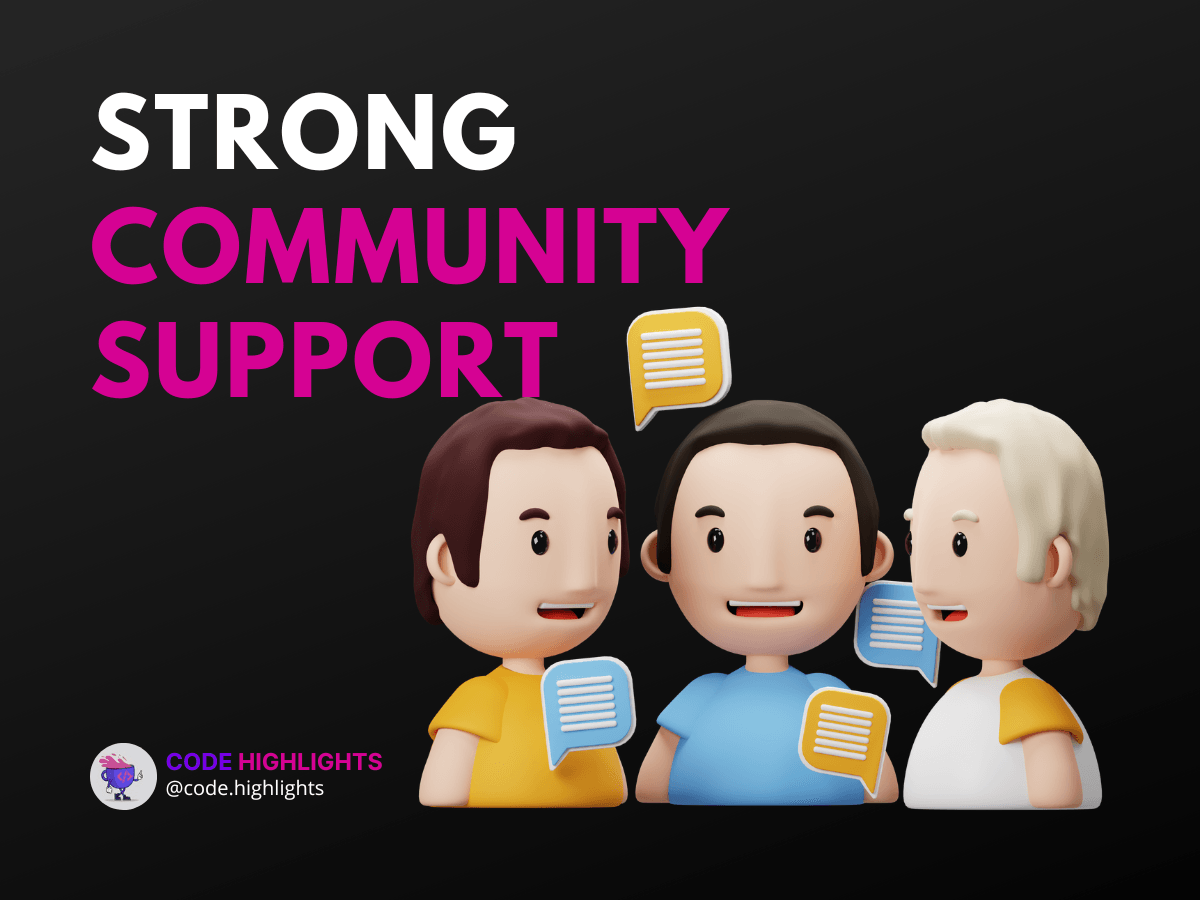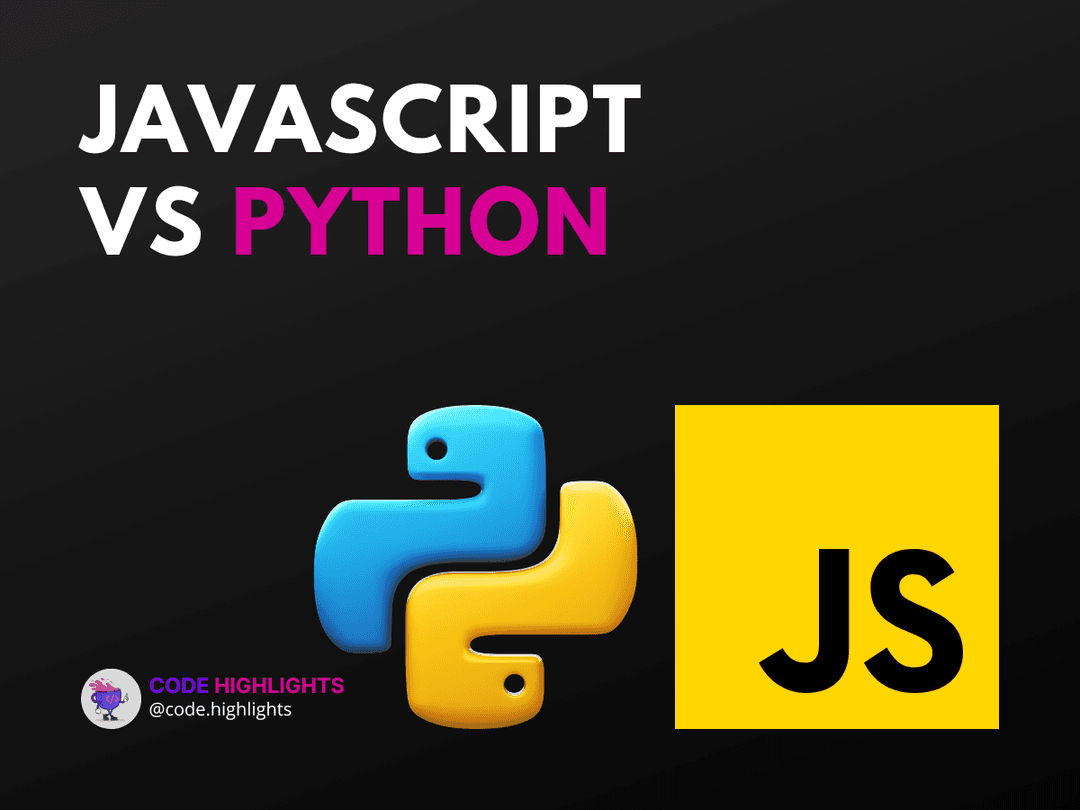5 reasons why is JavaScript so popular

- Brief Overview of JavaScript
- Importance of JavaScript in Web Development
- Reason 1: Easy to Learn
- Simplicity of JavaScript Syntax
- Availability of Learning Resources
- Reason 2: Versatility
- Use of JavaScript in Front-end and Back-end Development
- JavaScript in Mobile App Development
- Reason 3: Strong Community Support
- Role of Community in Problem-Solving
- JavaScript's Open-Source Libraries and Frameworks
- Reason 4: High Demand in the Job Market
- Growing Need for JavaScript Developers
- Competitive Salary Packages for JavaScript Professionals
- Reason 5: Continuous Evolution
- Regular Updates and Improvements in JavaScript
- Adoption of Modern JavaScript Frameworks
- Conclusion
- Recap of Why JavaScript is So Popular
- Future Prospects of JavaScript
JavaScript is like the Swiss Army knife of the web, it's versatile, ever-present, and you'd be hard-pressed to find a website that doesn't use it.
It's the secret sauce that brings websites to life, making them interactive and engaging. Whether you're a budding developer or a seasoned pro, understanding why is javascript so popular can be a game-changer in your career.
Brief Overview of JavaScript
Created in 1995, JavaScript quickly became the go-to scripting language for creating dynamic content on the web. It's not just for fancy animations or validating forms; it's the cornerstone of modern web applications.
With its ability to run both on the client and server-side, JavaScript has evolved beyond the browser, becoming a key player in the development of mobile apps and even desktop software.
Importance of JavaScript in Web Development

The importance of JavaScript in web development is like the role of oxygen for breathing—it's absolutely essential.
From enhancing user experience to building complex web applications, JavaScript works hand-in-hand with HTML and CSS to create the interactive web we know and love today.
Dive into an introduction to web development and you'll see JavaScript is at the heart of it all, powering everything from simple websites to intricate cloud-based services.
Reason 1: Easy to Learn

JavaScript is like the friendly neighbor who's always there to lend a hand—it's welcoming to beginners.
You don't need a degree in computer science to get started; a dose of curiosity and some basic logic will do the trick.
Its syntax is straightforward, making it a breeze to pick up compared to many other programming languages.
Simplicity of JavaScript Syntax
The syntax of JavaScript is intuitive; you can often guess what the code does just by looking at it.
Think of it as the plain English of programming languages—no need for fancy vocabulary to get your point across.
This simplicity is a big reason why is javascript so popular, especially among those new to coding.
Availability of Learning Resources
If JavaScript were a book, it would be the one with the most dog-eared pages in the library of programming languages.
There's a wealth of resources available, from online tutorials to interactive courses, all designed to make learning JavaScript as easy as pie.
Whether you're looking to understand the basics or dive into advanced concepts, there's a JavaScript course for every level of expertise.
Reason 2: Versatility

JavaScript's versatility is like a chameleon's ability to adapt to different environments—it fits in just about anywhere.
From creating simple web pages to powering complex server-side applications, JavaScript has a broad spectrum of uses.
Its ability to run on both the front-end and the back-end makes it a full-stack superhero for developers.
Use of JavaScript in Front-end and Back-end Development
In the world of web development, JavaScript is the jack-of-all-trades.
On the front-end, it's responsible for the interactivity of web pages, working alongside HTML and CSS to make the web sparkle.
Switch to the back-end, and JavaScript doesn't miss a beat, thanks to environments like Node.js, which allow developers to build scalable network applications with the same language they use on the front-end.
JavaScript in Mobile App Development
When it comes to mobile app development, JavaScript is not just a third wheel; it's steering the car.
Frameworks like React Native enable JavaScript to be used for building high-performance mobile apps for both Android and iOS.
This cross-platform magic means you can create a single app that plays nice with multiple operating systems, all thanks to the power of JavaScript.
Reason 3: Strong Community Support

JavaScript thrives on the shoulders of a vibrant and collaborative community, akin to a beehive buzzing with activity.
This strong support network is a treasure trove for developers, providing a helping hand when tackling coding challenges.
The community's passion fuels continuous improvement and innovation, cementing JavaScript's place as a top contender in the programming world.
Role of Community in Problem-Solving
Imagine you're stuck on a tricky coding problem; with JavaScript, you're never alone.
Forums, social media groups, and platforms like Stack Overflow are brimming with JavaScript enthusiasts eager to share solutions.
This collective brainpower means that for almost every issue you encounter, someone else has faced it, solved it, and documented it—ready for you to learn from.
JavaScript's Open-Source Libraries and Frameworks
JavaScript's ecosystem is rich with open-source libraries and frameworks, each like a specialized tool in a developer's toolkit.
These resources, contributed by the community, accelerate development and foster best practices.
From React's declarative UI components to Angular's robust application framework, these open-source JavaScript tools empower developers to build sophisticated applications efficiently.
Reason 4: High Demand in the Job Market

The job market for JavaScript developers is like a bustling marketplace where demand often outstrips supply.
Businesses, big and small, are on the hunt for talent that can navigate the JavaScript landscape.
This demand is fueled by the language's ubiquity in web development and the continuous growth of the internet as a platform for business and communication.
Growing Need for JavaScript Developers
As more companies pivot to digital solutions, the need for skilled JavaScript developers skyrockets.
Startups to Fortune 500 companies are seeking individuals who can wield JavaScript to enhance user experiences and implement innovative web solutions.
The rise of web technologies has solidified JavaScript's role as a cornerstone skill, making its practitioners hot commodities in the tech space.
Competitive Salary Packages for JavaScript Professionals
With great demand comes great compensation.
JavaScript professionals often command competitive salary packages, reflective of the value they bring to businesses.
In tech hubs and beyond, proficient JavaScript developers are rewarded with attractive salaries, benefits, and career growth opportunities, making it an enticing field for aspiring coders.
For those looking to cash in on their coding skills, mastering JavaScript is a strategic move.
Reason 5: Continuous Evolution

JavaScript is like a fine wine; it gets better with age.
It's a language that doesn't just rest on its laurels but continually evolves to meet the changing needs of the web.
This adaptability ensures that JavaScript remains relevant and on the cutting edge, making it a wise choice for developers who want to stay ahead of the curve.
Regular Updates and Improvements in JavaScript
The stewards of JavaScript are always tinkering under the hood, rolling out regular updates and improvements.
These enhancements address everything from performance issues to new features that make development more efficient and enjoyable.
By staying up-to-date with the latest versions, developers can leverage these improvements to build faster, more secure, and more reliable web applications.
Adoption of Modern JavaScript Frameworks
The JavaScript ecosystem is not just about the language itself but also the robust frameworks that have sprung up around it.
Modern frameworks like React, Vue.js, and Angular represent the frontier of web development, providing developers with powerful tools to create responsive and scalable applications.
This widespread adoption of modern JavaScript frameworks is a testament to the language's vitality and its community's commitment to driving the web forward.
Conclusion
JavaScript's popularity is no fluke; it's a testament to its flexibility, ease of use, and the vibrant community that supports it.
From its humble beginnings to its current status as the backbone of modern web development, JavaScript has proven itself indispensable.
It's the go-to language for developers who want to build interactive websites, robust servers, and cross-platform mobile apps.
Recap of Why JavaScript is So Popular
To recap, JavaScript's simplicity and ease of learning make it accessible to newcomers, while its versatility allows for use in both front-end and back-end development.
The strong community support ensures a wealth of resources and collective problem-solving, and the high demand in the job market translates to excellent career opportunities.
Moreover, JavaScript's continuous evolution through updates and the adoption of modern frameworks keeps it at the forefront of technology trends.
Future Prospects of JavaScript
Looking ahead, the future of JavaScript seems as bright as ever.
As web technologies advance and new computing paradigms emerge, JavaScript is poised to adapt and grow.
Whether it's through the development of new frameworks, integration with cutting-edge technologies, or continued enhancements to the language itself, JavaScript will likely remain a central player in the digital world for years to come.
For those ready to jump into the world of web development, there's no better time to start learning JavaScript and ride the wave of its enduring popularity.
FAQs
What is the difference between JavaScript and Go language?
What is the difference between JavaScript and Go language?
JavaScript is a high-level, interpreted programming language that is commonly used for building dynamic and interactive web applications, while Go is a statically typed, compiled programming language designed for large-scale system and network programming. JavaScript is a loosely typed language that is known for its dynamic and flexible nature, while Go is known for its simplicity, efficiency, and performance.
Can I use JavaScript to build desktop applications?
Can I use JavaScript to build desktop applications?
Yes, you can use JavaScript to build desktop applications through various technologies such as Electron or Node Webkit. Electron allows you to build cross-platform desktop applications using JavaScript, HTML, and CSS, while Node Webkit allows you to create native desktop applications with a web-based UI.
How does JavaScript interact with HTML and CSS?
How does JavaScript interact with HTML and CSS?
JavaScript is used to add interactivity and dynamic behavior to HTML and CSS. HTML provides the structure of a web page, CSS provides its styling, and JavaScript provides interactivity through event handling, manipulating HTML and CSS, and making dynamic changes to the content and layout of a web page. JavaScript can also communicate with a server-side language, such as PHP or Ruby on Rails, to retrieve and manipulate data and update the content of a web page without reloading the entire page.
What is the future of JavaScript in web development?
What is the future of JavaScript in web development?
JavaScript has been and continues to be, a major player in the web development landscape. As the web continues to evolve and become more complex, JavaScript is likely to become even more important in providing dynamic and interactive experiences for users. In addition, with the growth of technologies such as React, Angular, and Vue, the use of JavaScript in web development is only likely to increase.
What are some key features of asynchronous programming in JavaScript?
What are some key features of asynchronous programming in JavaScript?
Asynchronous programming is a key feature of JavaScript that allows the execution of code to be non-blocking and without waiting for other tasks to complete.
Related courses
1 Course
Stay Ahead with Code highlights
Join our community of forward-thinkers and innovators. Subscribe to get the latest updates on courses, exclusive insights, and tips from industry experts directly to your inbox.

Related articles
3 Articles

Copyright © Code Highlights 2024.




